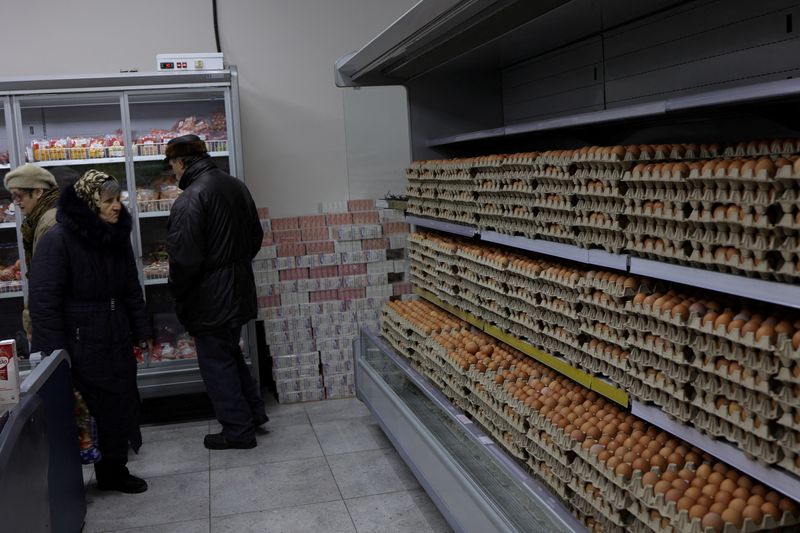MOSCOW (Reuters) -The Russian economy shrank 1.7% year on year from January to September, but capital investment, one of the main economic growth drivers, rose 5.9% in the same period, data from the Rosstat federal statistics service showed on Wednesday.
The export-dependent economy has withstood the impact of sweeping Western sanctions better than initially expected, although the government still has to contend with falling real wages, slumping retail sales and rising inflation.
The economy ministry expects Russia's gross domestic product (GDP) to fall 2.9% this year, a far cry from early assumptions that the economy could contract as much as 12% because of the sanctions imposed in response to what Moscow calls its "special military operation" in Ukraine.
Capital investment rose 5.9% year-on-year between January and September to reach 16.418 trillion roubles ($271.65 billion), Rosstat said.
Official unemployment remained at 3.9% in October, just above August's record low of 3.8%, Rosstat data showed on Wednesday, but real wages, which are adjusted for inflation, fell 1.4% year on year in September.
Data also showed that retail sales, the gauge of consumer demand, declined 9.7% in October in year-on-year terms after a 9.8% fall in the previous month.

All that comes as consumer prices climbed for the 10th week running, perhaps giving the central bank pause for thought. The Bank of Russia is widely expected to keep its key rate unchanged at 7.5% when its board meets on Dec. 16.
($1 = 60.4390 roubles)